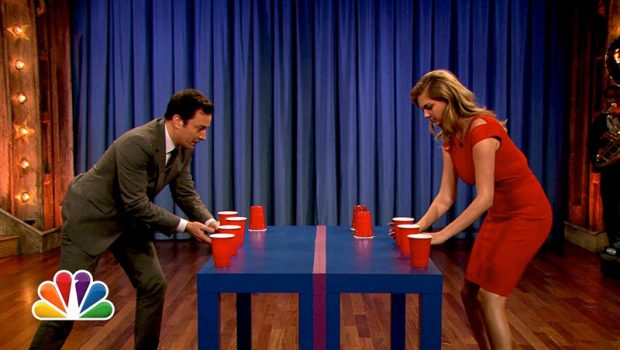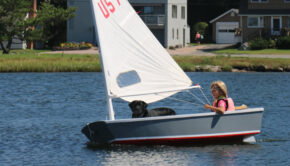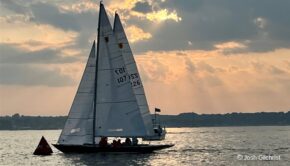In the spirit of friendly competition
Published on November 6th, 2017
Most sports evolve gradually. Perhaps by technique, equipment, or physical attributes, the game slowly changes. But sailing isn’t like most games. Our playing field and equipment varies. Our rules limit collisions but not preparation, and one person’s recreation is another person’s occupation.
The greatest challenge in sailing is heightened competition. The more effort needed to enjoy competitive sailing, the fewer people that will pursue sailing as their pastime. Rules try to hold down the bar, but culture and comradery prove to be the greatest tools. Corinthian values is what best manages the climate.
Examples of success in sailing surround us. Casual competition tend to outdraw long weekend events. If people sense their effort will be rewarded with enjoyment, they are more apt to participate. Otherwise they vote with their feet. Bill Jesse voted … here is his story.
I grew up sailing on Barnegat Bay in the 1960’s, starting with Sunfish moving to M Scows and then graduating to E Scows. I was fortunate as a high schooler to spend a summer racing with Ed and Jan Chance O’Malley (multiple Adams Cup winner) racing against competition like Gary Jobson and Sam Merrick. Everybody had day jobs. It was intense, but it was also fun.
Throughout the 70’s I raced frequently, first in college and then mostly on Massachusetts Bay before moving the San Francisco and taking up in the Santana 35 class. My memories of those days are very fond – we raced hard, and mostly fair. The prevailing, but not absolute ethic, was that you won on the water, not in the Committee Room. Most importantly, it was fun.
I sailed the 1977 Transpac on Blue Streak, a modified Cal 39 and the smallest boat in Class B. The first time the six of us were on the boat together was on the way to the starting line, and despite it being a big boat year (7 of the first 8 overall places were all Class A), we managed a respectable 5th in our class. Again, it was hard, fun and a great experience. Importantly, we started the race believing we had a chance to win.
In the early 80’s I ended up in a series of jobs that just made a reliable racing schedule an impossibility, so I basically sat out from 1981 through 1989. But when I tried to return it just felt like everything had changed, and I couldn’t ever find the joy that the earlier years had held.
It might have been me, but it seemed everybody was too serious, that the race course was an outlet for pent up aggression carried over from a bad week at the office and the degree of influence of money and pros had skyrocketed. To me, racing was no longer a recreational sport. It simply wasn’t fun.
Participation is rooted in a spirit of friendly competition. Fun on the race course is what keeps the sport alive and healthy.









 We’ll keep your information safe.
We’ll keep your information safe.